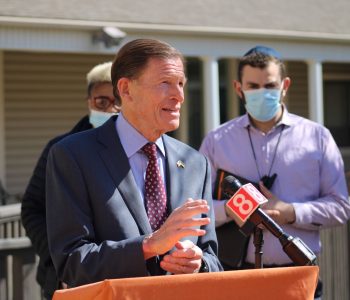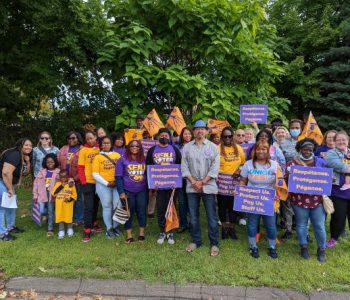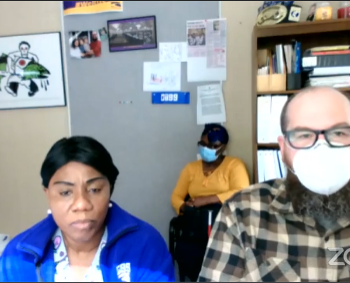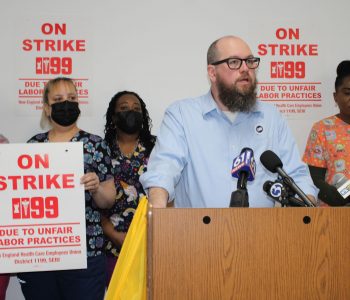State officials have announced that they’re scaling back COVID-19 testing at nursing homes and assisted living facilities. It’s a policy shift that comes as a major union representing eldercare workers said 14 of its members died after contracting COVID-19.
Earlier this month, Gov. Ned Lamont ordered weekly mandatory tests for staff members at nursing homes and assisted living facilities beginning no later than the week starting June 14.
That testing was supposed to last for the duration of the governor’s public health and civil preparedness emergencies, which extend into September.
But days after that staff testing was mandated to begin, Lamont scaled back the order and said it’s now acceptable for nursing homes to stop testing staff members if the facility goes COVID-19-free for 14 consecutive days.
Jesse Martin, with New England Health Care Employees Union District 1199, called the decision “disappointing.” He said that since the start of the pandemic, 14 people in his union have died from COVID-19.
“Testing is the key to understanding, controlling and reacting in appropriate ways to how this virus is affecting long-term care residents and staff,” Martin said. “We honestly believe that this new policy is not based in science … but that it is made based on the … cost of testing.”
State officials have said the new order is in line with federal guidance from the Centers for Disease Control and Prevention. And that testing will have to resume for a 14-day window if any staff member or resident tests positive for COVID-19.
More than 70% of Connecticut’s COVID-19 deaths have been from nursing homes and assisted living facilities, according to latest state statistics.
“We know how tragically hit the nursing homes were,” Lamont said on Thursday. “We are now in there testing every single patient. Every single nurse that’s there.”
Matt Barrett, president and CEO of the Connecticut Association of Health Care Facilities, said modifying the executive order to a two-week window was “very important.”
“If COVID is not present within a building for a two-week period, there really is no opportunity to spread the live virus,” Barrett said. “And so testing, and mandating weekly testing under those circumstances, is really counterproductive and even wasteful.”
Testing can be expensive. So far, the state has contracted with seven vendors for COVID-19 testing: Jackson Labs, Gensys, Hartford HealthCare, Sema4, Yale New Haven Health, PhysicianOne Urgent Care, and Quest. A spokesperson for the governor’s office said the average price for each test and its associated lab work across all those contracts is $117.
Barrett said he didn’t believe money drove the governor’s decision to relax staff testing requirements.
“While I don’t think it’s the reason that nursing homes will have the opportunity to discontinue testing,” Barret said, “… it will save scarce state and federal resources not to inefficiently and wastefully test when testing is really not warranted.”
But Martin from Union District 1199 said the revised order has blind spots.
“It doesn’t take into account that many people transmitting this disease are asymptomatic,” Martin said.
The revised order also doesn’t adequately address what might happen if an employee works multiple jobs and contracts the disease while working somewhere else, he said.
“We all know nursing home staff are vectors of transmitting this disease, both in the nursing homes, but also in communities,” Martin said. “Nursing home workers are paid poverty-level wages, and they have to work multiple jobs to provide for their families.”








